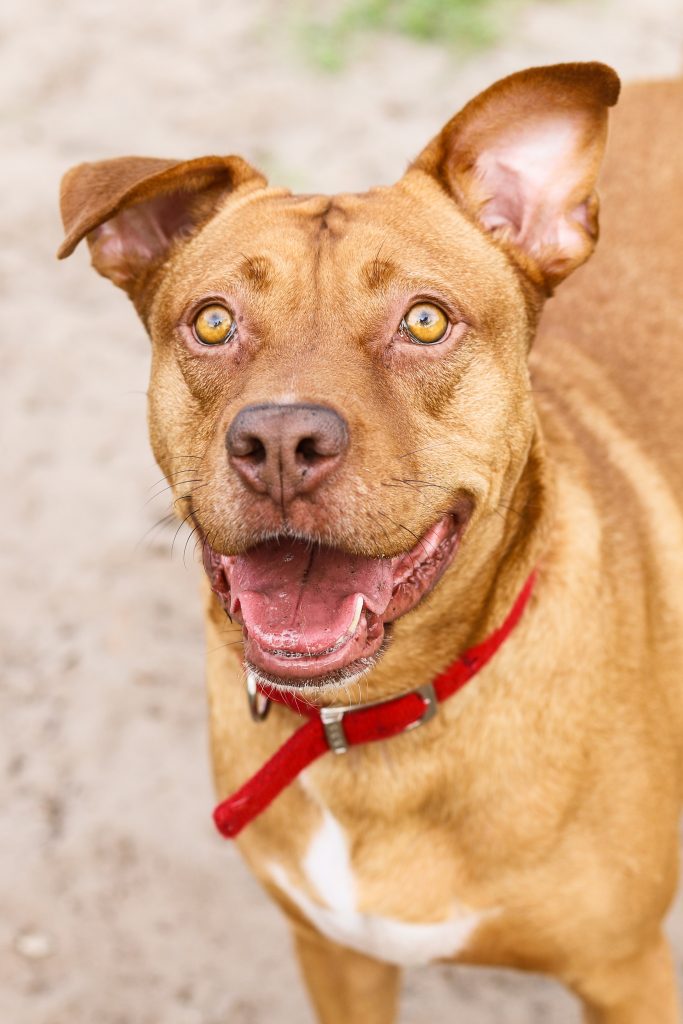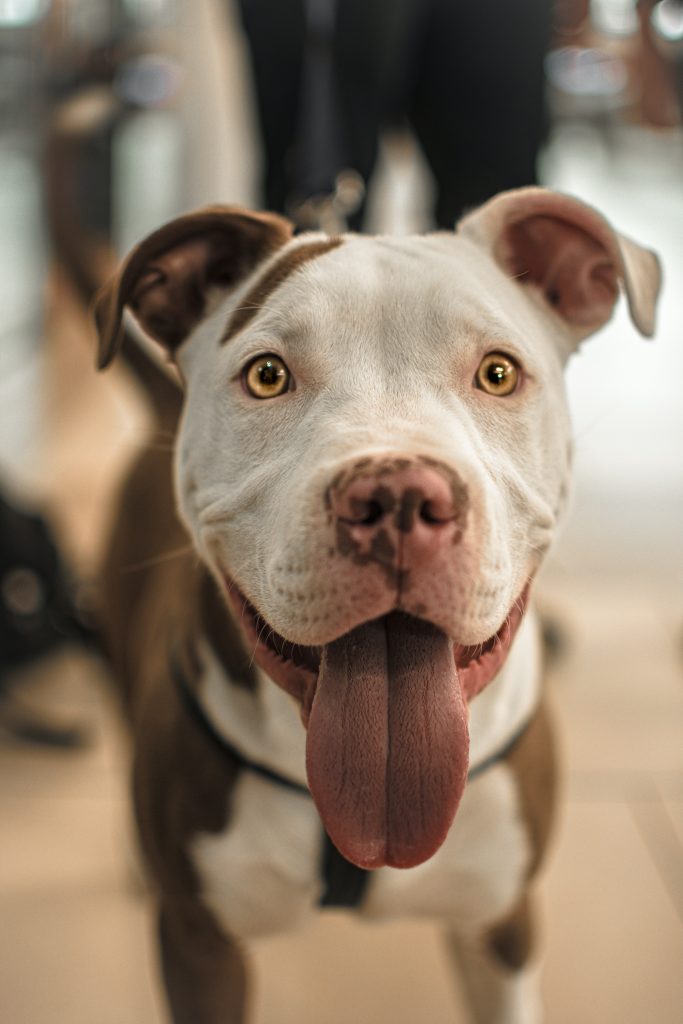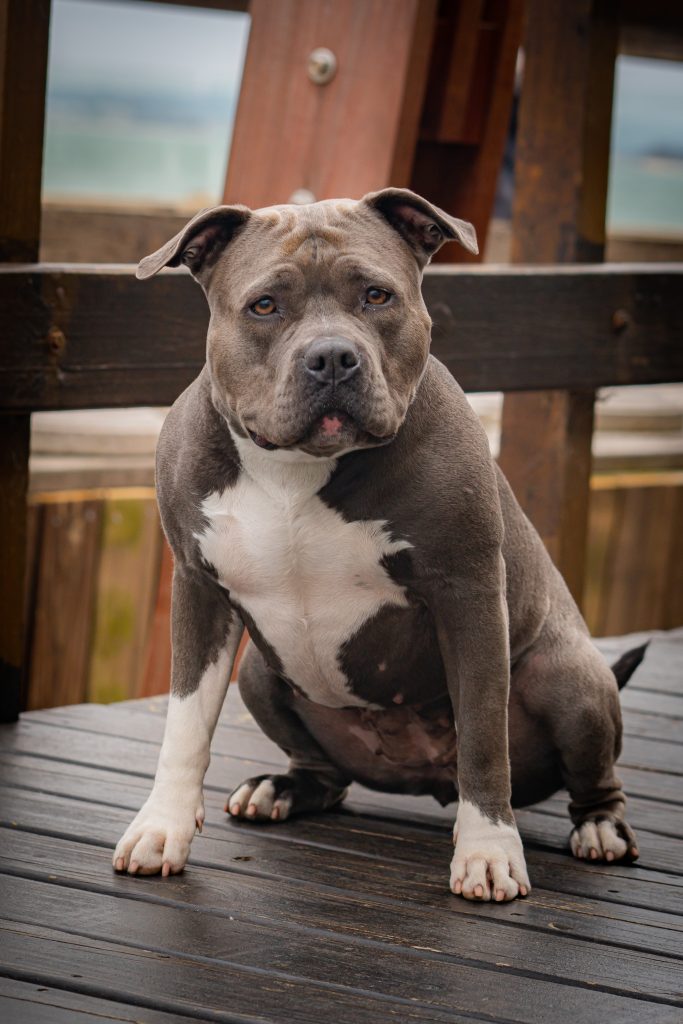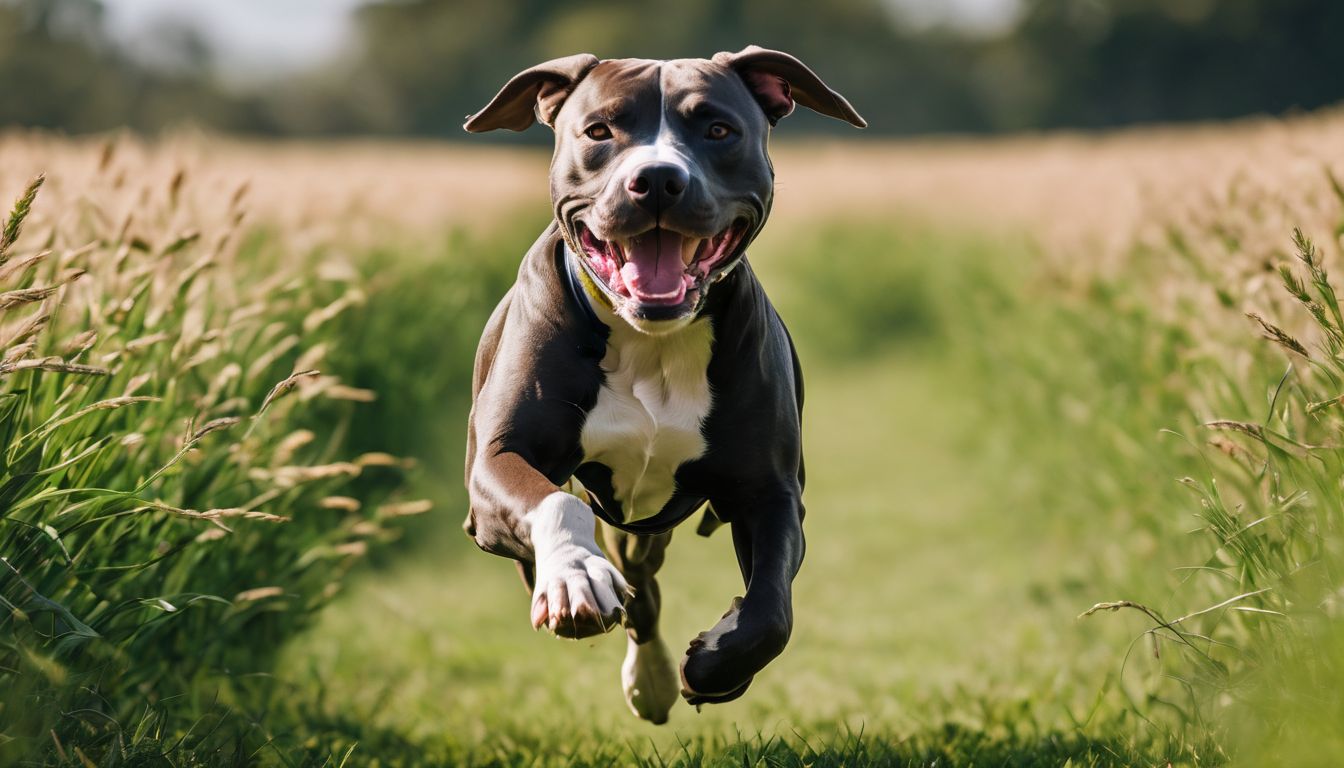Have you ever wondered about how long does pitbulls live? Despite misconceptions, these sturdy canines generally enjoy 12 to 16 active and healthy years. In this blog post, we unravel key factors that impact their longevity and share insightful tips on promoting optimal health for your four-legged friend.
Ready to unlock the secrets to a Pitbull’s long life? Keep reading!

Key Takeaways
- Pitbulls generally have a lifespan of 12 to 16 years.
- Factors like genetics, lifestyle, and size can affect the lifespan of pitbulls.
- Regular exercise, a healthy diet, and veterinary care are important for promoting their longevity.
- Pitbulls have an affectionate and playful temperament, making them great companions for families.
Factors Affecting Pitbull Lifespan
Gender, genetics, lifestyle, size, and underlying health issues all play a significant role in determining the lifespan of Pitbulls.
Gender
Boy and girl pitbulls can live for about the same amount of time. Some say boy dogs might stay a bit longer than girl dogs. But, it’s not a big difference. Both boy and girl pitbulls need care to live long lives.
They love to play and need lots of exercise. Love them, keep them happy, and they will stay with you for many years!
Genetics
The genetics of a pitbull can play a role in their lifespan. Different breeds of pitbulls may have varying lifespans due to their genetic makeup. For example, American Staffordshire terriers, one type of pitbull, tend to live longer than American Pit Bull Terriers.
However, overall, pitbulls are generally hardy dogs with good lifespans and few health complications. It’s important to understand the specific breed and its genetic predispositions when considering the lifespan of your pitbull.
Lifestyle
Pitbulls thrive in an active and engaging lifestyle. Regular exercise is essential to keep them healthy and happy. They need plenty of physical activities like walks, runs, and playtime to burn off energy.
A nutritious diet is also important for their wellbeing. Providing a balanced meal with high-quality ingredients can help support their overall health. Regular vet visits are necessary to monitor their health and catch any potential issues early on.
But most importantly, showering them with love, care, and attention will contribute to their longevity. Pitbulls are affectionate dogs that thrive on human companionship, so spending quality time together is crucial for their happiness and wellbeing.
Size
Pitbulls come in different sizes, depending on the specific breed. On average, Bull Terriers, a type of pitbull, can weigh between 22 and 38 kilograms. It’s important to note that size doesn’t necessarily determine a pitbull’s lifespan or overall health.
Regardless of their size, all pitbulls require regular exercise to stay fit and healthy. So whether you have a smaller or larger pitbull, make sure they get plenty of opportunities for physical activity to keep them happy and well-balanced.
Underlying Health Issues
Pitbulls, like any other dog breed, may experience certain underlying health issues that can impact their lifespan. While they are generally healthy dogs, there are a few conditions to be aware of.
For example, pitbulls can sometimes develop hip dysplasia, which is a problem with the hip joint that can cause pain and mobility issues. They may also be prone to allergies, which can cause skin irritation and discomfort.
By keeping an eye out for these potential health issues and providing regular veterinary care, you can help ensure that your pitbull stays happy and healthy for as long as possible.

Common Causes of Pitbull Mortality
Pitbulls face common causes of mortality that include trauma, cancer, gastric dilatation volvulus, and skin disease.Trauma
Pitbulls can sometimes be prone to trauma, which can affect their lifespan. Trauma refers to any injury or physical harm caused by accidents, falls, fights, or other incidents. While pitbulls are generally strong and resilient, they can still experience traumatic injuries that may have long-term effects on their health.
It’s important to provide a safe environment for your pitbull and take precautions to prevent accidents or dangerous situations. Regular vet check-ups and prompt medical attention in case of any injuries are crucial for ensuring the overall well-being and longevity of your beloved companion.
Cancer
Cancer is a serious health issue that can affect pitbulls. Just like humans, dogs can get cancer too. It’s important to be aware of this and take steps to prevent it. Some common types of cancer in pitbulls include skin cancer, bone cancer, and lymphoma.
Regular check-ups with the vet are essential for early detection. If you notice any unusual lumps or bumps on your pitbull’s body, it’s important to have them checked out by a professional.
Keeping your pitbull healthy through regular exercise and a balanced diet can also help reduce the risk of developing cancer.
Gastric Dilatation Volvulus
Gastric Dilatation Volvulus, also known as GDV or bloat, is a serious condition that can affect Pitbulls. It happens when their stomach fills with gas and twists around itself. This can cause the blood supply to be cut off, leading to tissue damage and even death if not treated quickly.
Common symptoms of GDV include bloating, restlessness, difficulty breathing, and retching without vomiting. Factors like eating too fast, exercising after meals, or having deep-chested breeds can increase the risk of GDV in dogs.
If you notice any signs of bloat in your Pitbull, it’s important to seek immediate veterinary attention to save their life. Regular exercise and feeding small meals throughout the day can help prevent this condition from occurring.
Skin Disease
Pitbulls are generally a healthy breed, but they can be prone to skin diseases. These diseases can cause discomfort and affect their overall well-being. Common skin conditions in pitbulls include allergies, bacterial or fungal infections, and parasitic infestations like mange.
Regular grooming and proper hygiene practices can help prevent these issues. It is important to keep their skin clean and dry, regularly check for any signs of irritation or infection, and promptly seek veterinary care if needed.
By addressing skin disease early on, you can ensure your pitbull stays healthy and happy for years to come.

Temperament of Pitbulls
Pitbulls are known for their confident, affectionate, playful, and intelligent temperament. Discover more about these amazing dogs and why they make great companions.
Confident
Pitbulls are often known for their confident nature. They have a strong sense of self-assurance and tend to carry themselves with pride. This confidence can be seen in their posture, body language, and overall demeanor.
Pitbulls are not easily intimidated and they approach new situations with poise. This makes them excellent guard dogs as they exude an air of authority that can deter potential threats.
Their confidence also extends to their interactions with their owners, as they are loyal and protective. Despite this assertiveness, it is important for owners to provide proper socialization and training to ensure that their pitbull’s confidence is balanced with good behavior.
Affectionate
Pitbulls are known for being affectionate dogs. They love to be around their families and show them lots of love and attention. Pitbulls are often described as loyal and devoted, always wanting to be by your side.
They will shower you with kisses and snuggles, making sure you feel loved every day. Their affectionate nature also extends to children, as they can be gentle and patient with them.
If you’re looking for a dog that will give you endless cuddles and unconditional love, a pitbull is a great choice!
Playful
Pitbulls are known for their playful nature. They love to run, jump, and play fetch with their owners. This active and energetic behavior is a key characteristic of the breed. It’s important to provide plenty of opportunities for exercise and mental stimulation to keep your pitbull happy and healthy.
Playing games like hide-and-seek or teaching them new tricks can help channel their energy in a positive way. Remember to supervise playtime and provide appropriate toys that are safe for them to chew on.
By embracing their playful side, you can strengthen the bond between you and your beloved pitbull.
Intelligent
Pitbulls are known for their intelligence. They are quick learners and can be easily trained. This makes them versatile and capable of learning various commands and tricks. Their intelligence also helps in problem-solving, allowing them to adapt well to different situations.
Pitbulls thrive when mentally stimulated, so providing them with interactive toys and engaging activities is important for their overall well-being. With their intelligence and willingness to please, pitbulls make excellent companions and can excel in various dog sports such as obedience, agility, and tracking.
Tips for Preventive Care and Promoting Longevity
Regular exercise, a healthy diet, multivitamin supplementation, regular vet visits, and showering them with care and love are all essential for preventive care and promoting longevity in pitbulls.
Regular Exercise
Regular exercise is essential for keeping pitbulls healthy and happy. Here are some tips to help you ensure your pitbull gets enough exercise:
- Take them for daily walks or runs to keep their muscles strong and their weight in check.
- Play games like fetch or tug-of-war to engage their natural instincts and provide mental stimulation.
- Consider enrolling them in obedience classes or agility training, as these activities can provide both physical and mental exercise.
- Provide them with interactive toys that require physical activity, such as puzzle toys or treat-dispensing toys.
- Engage in activities like swimming or hiking, which can provide a change of scenery and new challenges for your pitbull.
Healthy Diet
To keep your pitbull healthy and promote longevity, it’s important to provide them with a nutritious diet. Here are some tips for a healthy diet:
- Feed them high – quality dog food that is specifically formulated for their breed and size.
- Make sure the food contains all the essential nutrients they need, such as protein, carbohydrates, fats, vitamins, and minerals.
- Avoid feeding them table scraps or human food as it may not meet their nutritional needs and can cause digestive issues.
- Divide their daily food into smaller meals throughout the day to prevent overeating and promote better digestion.
- Provide fresh water at all times to keep them hydrated.
- Consult with your veterinarian to determine the appropriate portion sizes based on their age, weight, and activity level.
- Consider adding supplements like omega – 3 fatty acids to support their skin and coat health.
Multivitamin Supplementation
To keep your pitbull healthy and promote longevity, consider adding multivitamin supplementation to their diet. Here are some benefits of giving your pitbull multivitamins:
- Boosts immune system: Multivitamins provide essential nutrients that can strengthen your pitbull’s immune system, helping them fight off diseases and infections.
- Supports joint health: Pitbulls are prone to joint issues like hip dysplasia. Multivitamins that contain glucosamine and chondroitin can support joint health and reduce the risk of developing these conditions.
- Enhances skin and coat health: A shiny, healthy coat is a sign of overall well-being in dogs. Multivitamins with omega-3 fatty acids can improve the condition of your pitbull’s skin and coat, reducing itching and shedding.
- Improves digestion: Some pitbulls may have sensitive digestive systems. Multivitamins with probiotics help maintain a healthy gut by promoting good bacteria, improving digestion, and preventing gastrointestinal issues.
- Provides antioxidant protection: Antioxidants are important for neutralizing harmful free radicals in the body. Including vitamins A, C, and E in your pitbull’s diet through multivitamin supplementation can provide antioxidant protection for their cells.
Regular Vet Visits
Regular vet visits are crucial for the overall health and wellbeing of your pitbull. Here are some reasons why:
- Early detection: Regular check-ups allow the vet to identify any potential health issues early on, before they become major problems.
- Vaccinations: Vets can ensure that your pitbull is up-to-date on all necessary vaccinations to protect against common diseases.
- Preventive care: Vets can provide preventive treatments such as flea and tick control, heartworm prevention, and dental cleanings to keep your pitbull in optimal health.
- Nutritional guidance: Vets can offer advice on the best diet for your pitbull’s specific needs, helping to ensure they receive proper nutrition.
- Dental care: Vets can perform regular dental exams and cleanings to prevent oral health problems and maintain fresh breath.
- Tailored advice: Vets can provide personalized guidance on exercise routines, training tips, and behavior management for your pitbull.
- Health monitoring: Regular vet visits allow the vet to monitor your pitbull’s weight, body condition, and overall health over time.
- Senior pet care: As your pitbull ages, regular vet visits become even more important to address age-related health concerns and provide appropriate senior pet care.
Showering them with Care and Love
To ensure the health and happiness of your pitbull, it’s important to shower them with care and love. This includes providing regular exercise to keep them active and fit. A healthy diet is also essential, ensuring they receive the proper nutrients for their well-being.
Multivitamin supplementation can help support their overall health. Regular visits to the vet are crucial for check-ups and preventive care. Most importantly, show them love by giving attention, affection, and companionship.
By taking these steps, you can help promote a long and fulfilling life for your beloved pitbull companion.

Conclusion
In conclusion, pitbulls have a good lifespan, living up to 15 years on average. Factors like genetics, lifestyle, and size can affect their lifespan. It’s important to provide them with regular exercise, a healthy diet, and veterinary care to promote longevity.
Despite misconceptions about their temperament, pitbulls are affectionate and playful dogs that make great companions for families.
FAQs
1. What is the lifespan of pit bulls?
The lifespan of pit bulls, including American Staffordshire terriers and red nose pitbulls, often varies but they generally live between 12 to 16 years.
2. How does a Pit Bull’s life compare with other dogs?
Pit Bulls have a similar lifespan to several large dog breeds like German Shepherds, Golden Retrievers, and Labrador Retrievers.
3. Does good health care impact the longevity of pitbulls?
Yes! Good pitbull care which includes proper diet, exercise and regular vet checks can enhance their lifespan significantly by maintaining their overall health
4. Can genetics affect how long my Pit Bull might live?
Pitbull genetics do influence their lifespans; traits specific to these breeds may cause variations in individual dog’s lives.
5. Are there ways to make my PitBull live longer?
Promoting longevity in pit bulls involves good diet control, physical activity and routine medical checkups besides accounting for any specific breed-related factors.


